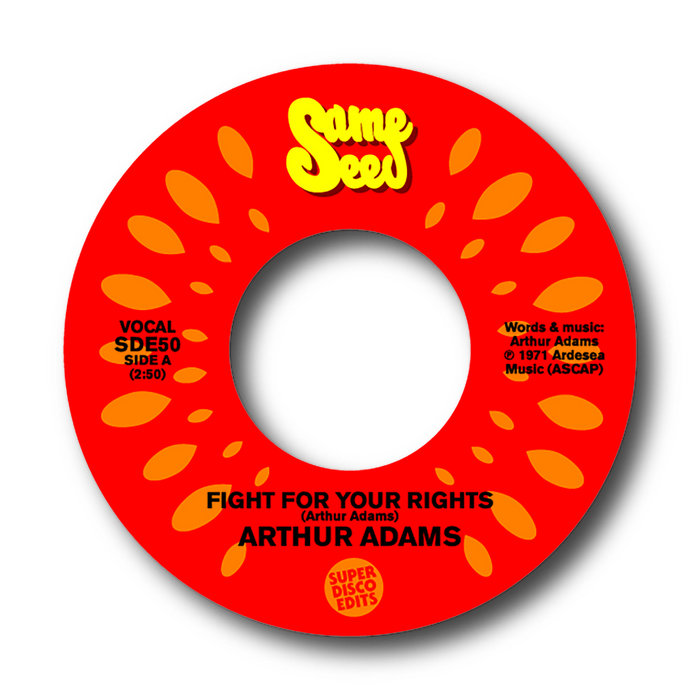
fight for you rights – Arthur Adams
this blog is GROOVY – check out great Soul, Funk, Jazz, Hip Hop, Bass, Breaks , Reggae, House n many more TUNES
Ah, the sweet sounds of soul music! It’s not just about love and heartbreak; it’s also a powerful voice for change. Enter Political Soul, the genre that grooves alongside social movements, grooving to the beat of liberation and justice. So let’s journey through this funky landscape where rhythm meets resistance!
Our story kicks off in the heart of American cities during the civil rights movement, where artists like Sam Cooke belted out tunes that stirred hearts as much as they stirred feet. His iconic song “A Change Is Gonna Come” (1964) became an anthem for those fighting against racial injustice.
Did you know? Cooke originally wrote this track after being turned away from a motel simply because he was black. Talk about turning pain into art!
It wasn’t long before other soul legends joined the charge—people like Aretha Franklin, Marvin Gaye, and Curtis Mayfield followed suit. You could say that political soul was born out of necessity; these musicians couldn’t resist speaking their minds through their melodies.
Now, let’s slide over to Motown—the label that made soul famous with its catchy hooks and danceable beats. But behind all those polished productions were artists who wanted to make statements as bold as their fashion choices.
Marvin Gaye’s “What’s Going On” (1971) is one standout example—a soulful lament questioning societal issues like war and environmental degradation. What many might not know is that Berry Gordy (the founder of Motown) initially resisted releasing it! He thought it wouldn’t sell… well, surprise! It went on to become one of his biggest hits!
After some convincing from fellow musicians (and probably listening parties filled with good vibes), Berry relented—and thankfully so! That album even sparked rumors about Marvin wanting to be president himself someday… Guess what? Spoiler alert: It didn’t happen!
As we twirl into the ’70s, we find ourselves amid funk-infused political activism led by bands like Parliament-Funkadelic and Sly & The Family Stone. This era brought more than just deep bass lines—it introduced political consciousness wrapped up in infectious rhythms.
Sly Stone really showed how soul could be both fun AND serious at once with songs like “Everyday People.” He tackled topics like race relations while keeping everyone dancing wildly on the floor!
Sly Stone famously had a penchant for colorful outfits—sometimes wearing sequined pantsuits or feather boas during performances! Imagine trying to pull off a groove while avoiding sequins getting stuck in your hair—that man knew how to dazzle both musically and visually!
Fast forward to the ‘80s when hip hop started seeping into our beloved soul scene—artists blended beats from funk/soul classics with sharp lyrics addressing societal woes. Public Enemy took center stage here; their aggressive style combined samples from classic tracks made them crucial voices against racial discrimination.
And remember “Fight The Power”? Yeah—that came straight from Spike Lee’s film Do The Right Thing, which showcased social injustices in urban settings so vividly you felt every word resonating through your very bones—but also managed to have an unforgettable groove!
Chuck D doesn’t hold back when talking politics either—in fact he insists on calling his group “the Black CNN” since they’re delivering news everyone should listen closely to—and let me tell ya, this dude does NOT shy away from heated debates online either today… Social media hasn’t tamed him—it only amplified his voice more than ever before.
As we shimmy into our modern age brings us Neo-Soul artists such as Erykah Badu and Jill Scott who infuse their messages seamlessly within sultry rhythms adding layers upon layers—a smooth blend reminiscent yet fresh enough fit right between past grooves without losing touch with present realities.
They delve deeply into subjects ranging from personal struggles against systemic inequalities down her own experiences navigating life being openly candid showing vulnerability resonates strongly amongst listeners inspiring change beyond mere entertainment value!!
Did you catch Erykah getting kicked offstage for teaching people lessons? Yep—you heard me right! During one performance she took time-out literally slowing things down explaining concepts surrounding self-love!! Imagine seeing your favorite artist pausing mid-show going all TED talk mode—it was equal parts inspirational and laugh-out-loud funny watching audience reactions scramble between inspired gasps mixed confused chuckles wondering if they’d come expecting ol’ school jam session or lecture series instead?!?
From Sam Cooke crooning heartfelt truths under moonlit starry skies through fiery verses by Public Enemy calls urging action ‘till now current sounds echoing thoughts reflecting complex matters brimming inside restless souls elevating awareness—we see harmony thriving thru conflict albeit adorned simply shades twinkling beneath purposeful passion embracing world-changing spirit amidst rhythmic vibrations unifying humanity itself timelining history revealing tales unheard sung untold allowing vibrant melodies breathe life understanding connect various walks alike…
So next time you find yourself bobbing head loss-in-a-good-way remember there lies history pulsing somewhere deep within those notes bringing light illuminating differences no matter what colors we may wear imparting unity shout louder amid chaos creating possibilities free making space celebrate diverse exists emerge greater than self alone #KeepItGroovyFolk!!
Now take these insights along with some tunes blasting around while setting space positive vibes ignite conversations stir change uplifting everywhere possible keeping alive legacy passed proud whenever any challenge arises needing strength overcome together moving forward ONE BEAT AT A TIME!!! 🎶✊🏽

fight for you rights – Arthur Adams